
Mori Film Lab
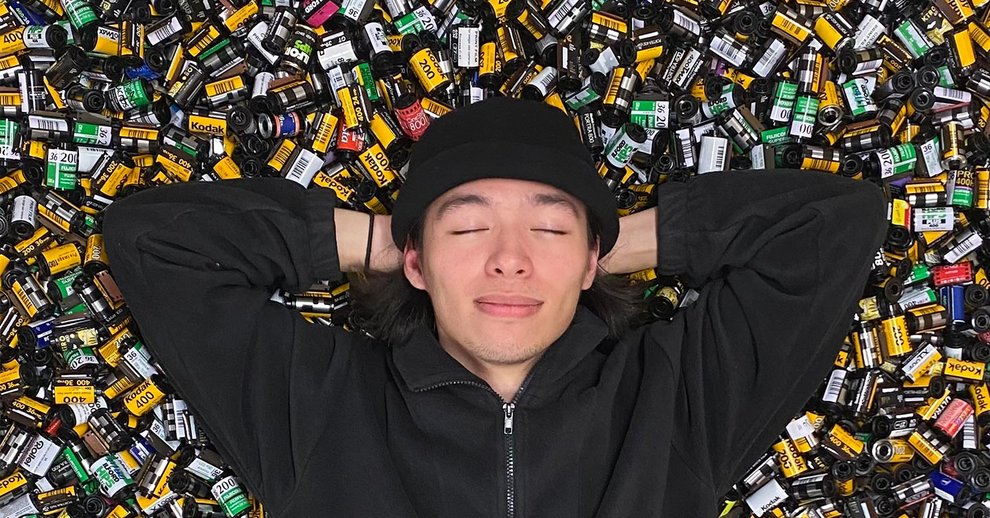
In a world where we can capture life’s precious moments at the tap of a phone’s touch screen, you might assume old-school film photography has become redundant.
But as Raphaël Stradiot, co-owner of Mori Film Lab, will tell you, it’s a truly thriving industry.
Behind its modest exterior, the store is a buzz of activity with machines whirring and flashing as a reel gets developed. A group of photography enthusiasts gathers around a large workbench comparing cameras while a vinyl plays softly on the record player in the background.
On one side, shelves running from floor to ceiling are lined with row upon row of used film cameras waiting to be picked up and tried out, while the opposite wall is adorned with a photo exhibition displaying some of the incredible shots taken by the local film community who use the space.
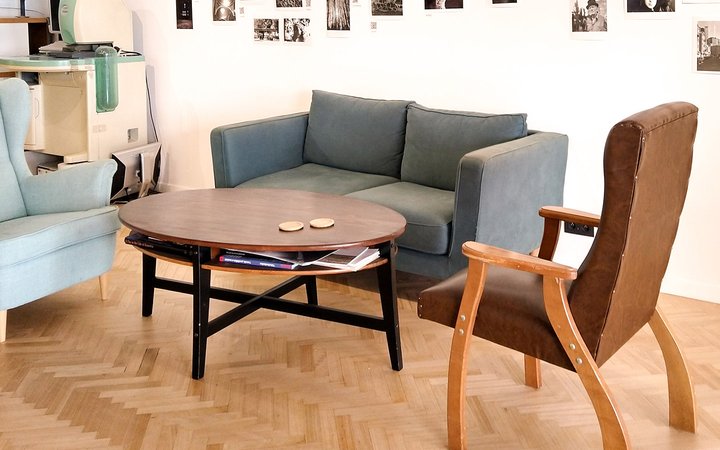
There’s a comfy sofa area for customers to chill out while they wait for their film to develop or before one of the many workshops the team puts on for those looking to improve their skills or simply to meet others, but at the back of the shop is where the magic happens—the developing lab and darkroom.
It’s exactly the vibrant and welcoming environment that Raphaël hoped to achieve when he opened Mori Film Lab with childhood friend Cole Sale in the Belgian capital of Brussels back in 2020.
“It was really important for us to create a sense of community, so the vision from the beginning was that people could come and chill out at the lab and feel like they could speak to someone that had the time to help them out”
“We have exhibitions where we pick the images and put them on the wall, we organize courses where we try and bring people together and we’re always happy to chat - if someone wants to nerd out about camera gear we always take the time.”
Matter of coincidence
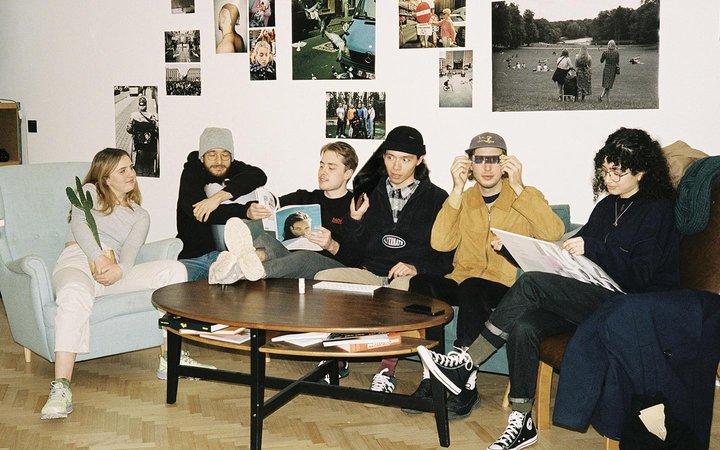
Running a film lab business wasn’t something that Raphaël ever thought he’d be doing, and it only came about after he found himself working at a lab more than 10,000 miles away in Melbourne, Australia, called FilmNeverDie.
“I didn’t do any studies or anything related to photography,” he explains.
“I was actually planning on becoming a biologist - that’s something I’m really passionate about - but when I was 18, I wanted to go abroad for a year and experience something else before going to university, so I left for Australia.
“When I came back to start my studies, I went to one class and I absolutely hated it. I’ve always liked school but I think the experience of real-life and doing something different really opened up my perspective.”
Rather than continue with his studies, Raphaël decided to return to Australia, where he worked in a coffee shop, as well as doing some film photography on the side.
“It was something I had started to do in Belgium with one of my childhood friends and now co-owner of the lab, Cole.
“Back then, when I was 14 or 15, no one was really playing around and shooting with old film cameras, so it was quite a weird, nerdy thing to do.
“When I came to Australia, my girlfriend at the time took me to check out this lab called FilmNeverDie, and it was super cool because it was owned by young people who had a fun, vibrant team, and they were doing this new thing with old technology.
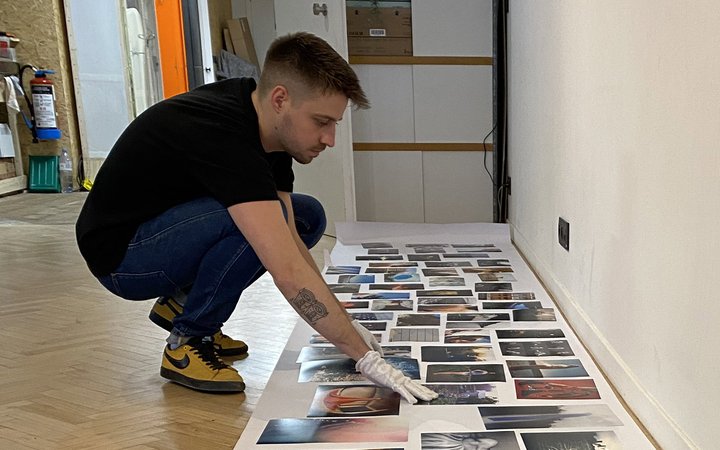
“I spent a lot of time there, meeting with people, scanning my own film, taking part in their activities, and getting prints on their photo wall.
“A year or so later, Cole joined. He was doing studies in biochemistry back in Belgium, but he absolutely hated it, so he started working there as a volunteer for a few months.
“One day, while I was there, the boss, Gary, asked if he could show me something. It was this back room they called ‘the dungeon.’ It was this huge space with no lights and was just used for storage.
“There were boxes piled up full of cameras with problems, so he said if you want, you can just work for us and repair them. I was like 100%, so that was how I got into it.
“I was also doing part-time business studies—mainly to get a visa, but the studies turned out to be interesting as well—so I started working more on the business side of FilmNeverDie. I was doing listings, running the website, and helping out with social media, so I gradually became more involved in the company.
“But then the building they were using in central Melbourne got bought over, so we got kicked out and had to go back to where their business started—in a tiny garage about 30 minutes away from the city. That was hard for the business.
“During that time, a lot of the personnel had to stop working there so it was a very reduced team and it ended up being Gary, Cole, myself, and two other employees—one for the shop and one for scanning. I was still fixing cameras but it also meant I got a lot more involved in the business side of the company.”
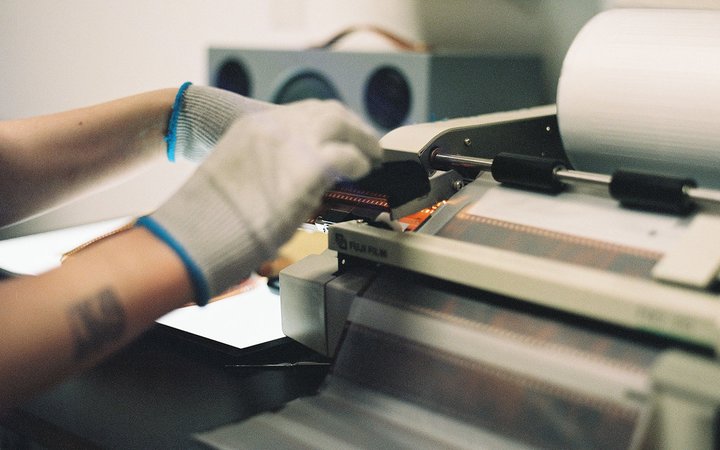
Raphaël says it was around this point that he started asking himself whether he should continue living in Australia or return to Belgium.
He says: “I had not seen my friends and family for quite a while, and while Australia is so beautiful and the people are super nice, it’s a really expensive place to live.”
Instead, he decided to speak to Gary, the owner of FilmNeverDie, about his plans to move home, and incredibly he offered to spend the next six months training Raphaël and Cole so they could move back home and set up something similar in Belgium.
“Cole had all the technical knowledge about scanning, developing, the chemistry, and how to manage the lab while I had more of the business and camera sales experience,” says Raphaël.
“Gary taught us about all of the different things we’d need to run a business. I’d say it became more of a mentorship than a job, which was great.”
Setting up the lab
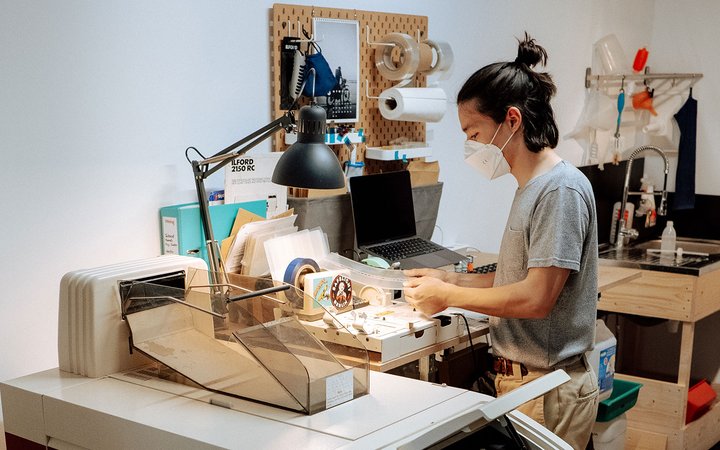
The pair returned to Belgium at the end of 2019 with plans of opening their new lab by mid-2020, but then Covid hit.
Raphaël says: “It actually worked out quite well for us because it gave us a lot more time to build the business. If we had launched in July 2020 as planned, we wouldn’t have been as prepared as we were when we finally launched in December 2020.
“By the time we were ready to open our lab, we had already created a hype. We had done crowdfunding, and we had an active Instagram page where we had been sharing camera tips for a couple of years.“But just when we were at the point of announcing the opening date, the second lockdown hit. So, we didn’t have our great opening party—but being able to operate behind closed doors was actually super valuable because it gave us a lot more time to focus and iron all the little things out and in the end, it helped us in a more healthy way.”
However, the hype they had created around their company had also sparked their biggest challenge in setting up the business so far, according to Raphaël.
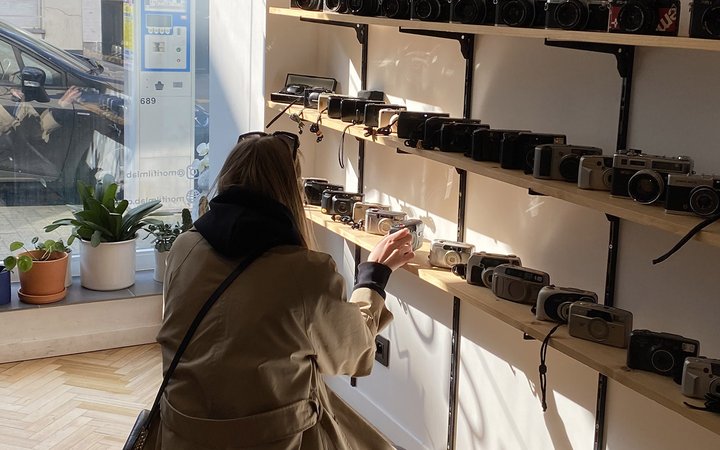
“So many people were happy with what we were doing and would come in creating an amazing buzz, but we got overwhelmed really fast,” he explained.
“We were incredibly overworked, and when you grow really fast like that, the initial stress becomes how do we solidify and create a good healthy base as the main structure isn’t solid.
“Our original plan was just to stay as two of us and get one part-time extra, but already there’s now three working full time, four part-time employees, and we’re hiring three extra people as we speak.
“Now we’ve been open for 1.5 years and everything runs a lot more smoothly. Everyone is very engaged in it and we’re starting to really solidify the base of the business.”
Setting up on Shopify
Mori Film Lab is not only an incredible in-person space for film enthusiasts to hang out, but it also has an online presence to match.
Ecommerce was important to Raphaël and Cole as at least a third of their revenue comes from online orders.
“Most of our sales are local to Belgium. I’d say about 70% are customers who have come into the store and then ordered online from our webshop, then about 30% is distributing through France and Germany mainly,” Raphaël says.
He built their online store on Shopify entirely himself after gaining experience with the platform through his previous job at FilmNeverDie.
“The shop I was working at before was using Shopify. The whole integration of the website and the point of sale makes managing stock so much easier, so it was just the ease of use.
“I knew how to customize it and the architecture of it - plus we didn’t have any money, so I had to do it myself.”
Automation saves the day
Something that became of real value to Raphaël as he juggled managing the website and running the physical store was automation.
He was spending an entire day of every week manually writing invoices.
“I had a Google Excel Sheet that I would copy and paste all the info and I had to keep it in a drive so I could send it through to my accountant,” says Raphaël.
“I hated doing it but I had to. I would spend one whole day a week manually doing invoices and it eventually became too much.
“We had so many orders coming in and I couldn’t do it anymore, so I went on the app store and I looked at what invoicing software was available.
“I tried a bunch of different ones before I settled on Sufio because at that point it was a bit too expensive for us, so I was trying to get the free alternatives.
“One of them made a bit of a difference but I still had to do a load of things manually and eventually I decided I didn’t want to spend more than an hour a month handling this, so I contacted Sufio and they were so helpful.
“Because the regulations here in Belgium are quite strict, it can be a bit complicated, and there were things that needed to be adjusted. But now it runs really smoothly, and I get all of my invoices done automatically, thanks to Sufio. I spend a max of two hours a month on them.”
“When I compare it now - back then we didn’t have the money - but now it’s so cheap for the benefits you get out of it plus the customer service is great. I talk with Djimi and he has always been super helpful.”
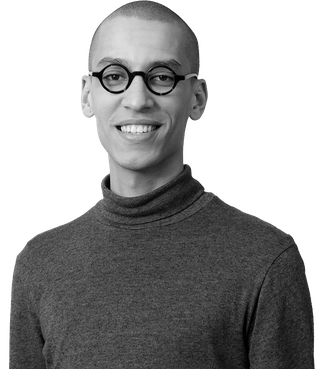
Expert help from our team
Are you looking for an automated and reliable invoicing solution on Shopify? Let’s have a chat!
Whether you're launching a new store or looking to fine-tune your existing setup, our team is ready to help.
Book a free callFuture of Mori Film Lab
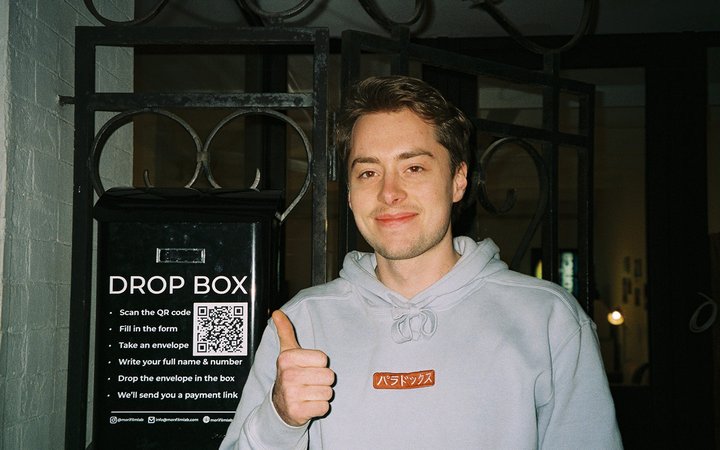
While Mori Film Lab remains a relatively new enterprise, having launched at the end of 2020 in the short space of 18 months, the team has already gained heaps of knowledge and experience.
In that time, Raphaël says it’s become much clearer how and where they want to take their business.
“People ask do we want to open more labs in other locations and we’ve talked about it but that’s something we’ve decided we don’t want to do,” he explains.
“The whole point was to have Mori Film Lab as a base and make it the best possible. Focusing on one location means that we can improve the system by which people are sending their films, so we want to work on rolling out more dropboxes to make it more accessible to more people.”
Mori has already partnered with a number of local businesses across Brussels so that people have more convenient locations to drop off their films - all of which can be found on Google Maps. It works by simply popping the film in an envelope with a name and number on it and scanning a QR code on the dropbox to fill out a form.
Raphaël says their other plans for the future include focusing on building the film photography community with more events, courses, and workshops, as well as better improving the technology and machinery they have in store to provide better quality and efficiency for their customers.
Try new things
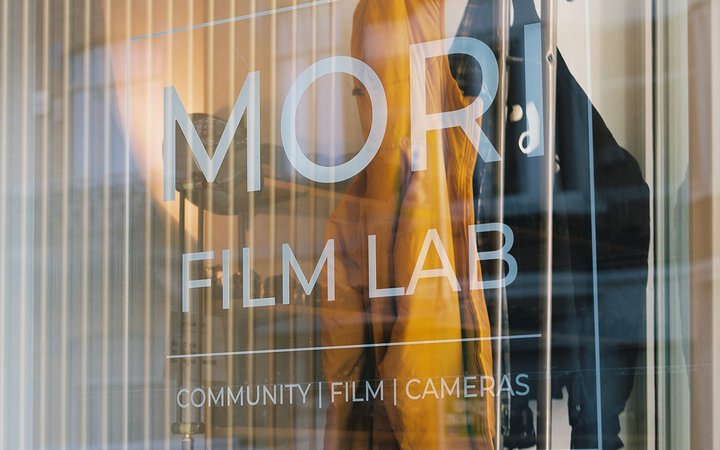
For many of us, we’re on a set career path based on subjects we were good at when we were at school, and it somehow dictates the rest of our life. But it might not necessarily make you happy and leave you with a niggling curiosity that perhaps things could be different.
When it comes to taking the plunge and setting up your own business, Raphaël knows only too well the motions needed to build something from the ground up.
He went from wanting to become a biologist to setting up a successful film lab in Brussels in just a few short years after having experienced the wider world.
“Honestly, the best advice I can give is to give yourself the chance to experiment a lot,” he says.
“If you want to start something, just do it, and don’t be afraid to put in a bit of work.
“A lot of people that are looking for something to do and don’t really know, the best way to find it is to get out in the world, socialize, and try new things. That really worked for me, and I made a lot of connections by doing that, and that’s how it got me here.
“That would be my main advice, just go do things, it doesn’t matter what it is, but go try something new.”
Professional invoices for Shopify stores
Let Sufio automatically create and send beautiful invoices for every order in your store.
Install Sufio - Automatic Invoices from the Shopify App Store